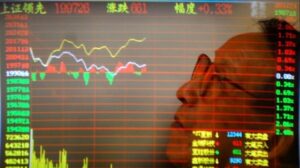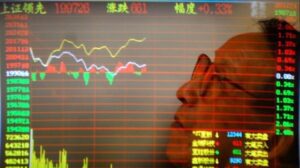
Stock indices of Asia-Pacific region do not show common dynamics at the trading on Wednesday.
Pressure on the market is growing fears of a new wave of banking crisis in the U.S. after the publication of reports First Republic Bank, which showed a sharp outflow of investors’ funds from deposits at the bank in the first quarter.
Investors’ attention is focused on the next meeting of the Bank of Japan, the results of which will be summarized on Friday. The day before the new head of the Japanese Central Bank Kazuo Ueda confirmed his intention to keep soft monetary policy in the country.
“Given the current economic, inflation and financial conditions, I think it is appropriate to maintain a soft policy with the current yield curve control,” Ueda said during a speech to a parliamentary committee on Tuesday.
In addition, the Political Bureau of the Chinese Communist Party is due to meet this week. Experts expect the ruling party leaders to focus on measures to improve business sentiment, boost employment and strengthen the housing market without additional stimulus.
Traditionally, the results of the meeting of the Politburo set the tone for the Chinese government policy in the coming months.
Chinese stock index Shanghai Composite gained 0,19% in the course of trading on Wednesday, the Hong Kong Hang Seng went up by 1,02%.
Leaders of the decline in mainland China are shares of technology companies: Dawning Information fell by 5.5%, 360 Security Technology fell by 3.1%, Inspur Electronic fell by 2.5% and iFLYTEK fell by 4.8%.
Shares of Chinese liquor maker Kweichow Moutai Co. are up 1.1% thanks to the company’s strong first-quarter report.
Aluminum Corp. of China gained 2.4 percent despite a decline in the aluminum maker’s net income and revenue last quarter.
In Hong Kong, shares of JD.Com (+4.1%), BYD Co. (+3.4%) and Geely Automobile (+3%) rose.
Hong Kong exports fell 1.5% to $367.2 billion in March, official data showed. The drop was recorded for the 11th month in a row, but its pace was the weakest since last May.
Imports fell 0.6%.
Japan’s Nikkei 225 stock index lost 0.7% in trading.
Shares of financial companies Mitsubishi UFJ Financial and Sumitomo Mitsui fell in price by 1.8% and 2.5% respectively.
The value of Nidec securities fell by 2.2%, Hitachi – 1.5%, Sony Group – 1.6%.
South Korea’s KOSPI stock index lost 0.06% in trading and Australia’s S&P/ASX 200 lost 0.05%.
Inflation in Australia slowed to 7% in the first quarter of 2023 from 7.8% in the fourth quarter of last year, according to released data. The rate of inflation in January-March was the slowest since the second quarter of 2022.

Stock indices of the countries of the Asia-Pacific region (APR) started trading on Monday with growth.
The Hong Kong Hang Seng rose 1.4% by 8:20 am KSK, while the Chinese Shanghai Composite added 0.1%.
The leaders of the rise in quotations on the Hong Kong Stock Exchange are shares of BYD Co. Ltd. (+7.5%). The country’s leading new energy vehicle (NEV) maker posted a record third-quarter net profit due to a surge in sales in China.
The shares of the IT company Tencent Holdings Ltd are also actively rising. (+6.8%) and casino operator Sands China Ltd. (+6.3%).
Railway Papers China Railway Group Ltd. cheaper by 6.8%. The company posted a 4.5% increase in net income last quarter, but an adjusted figure excluding government subsidies and interest income fell 2.5%.
Stock quotes of the developer Longfor Group Holdings Ltd. fell by almost 21% on the news of the resignation of the chairman of the board of directors of the company, Wu Yajun.
The cost of securities of another developer China Vanke Co. fell by 6.2% after the publication of financial statements. The company’s net profit in July-September fell by 14%.
Shares of automaker Geely Automobile Holdings Ltd. rise in price by 1.8%. The company plans to spin off its electric vehicle division into a separate business and list its shares on the stock exchange.
The Purchasing Managers’ Index (PMI) in China’s manufacturing industry fell in October to the lowest since July 49.2 points from 50.1 points a month earlier, according to the State Bureau of Statistics of China (GSO). On average, experts expected it to drop to 50 points, Trading Economics notes.
An index value below 50 points indicates a decline in activity in the sector. PMI is a leading indicator of business activity as managers make purchases based on expected demand.
The Japanese Nikkei 225 rose by 1.6% by 8:30 am KSK.
The shares of electronics manufacturer Alps Alpine Co. have risen most significantly. (+16%), which produces spare parts for industrial equipment JTEKT Corp. (+10%) and equipment manufacturer Keyence Corp. (+8.4%).
Among the leaders of growth in the composition of the Japanese indicator, securities of Toyota Tsusho Corp. are also traded. (+8.3%) after the publication of financial statements. The company increased its net profit by 19% in the third quarter and improved its forecast for the year.
Retail sales in Japan in September increased by the most since May 2021 – by 4.5% compared to the same month last year, data from the country’s Ministry of Economy, Trade and Industry showed. Analysts, on average, expected a less significant increase of 4.1%, according to Trading Economics.
Industrial production in Japan in September fell by 1.6% compared to the previous month, according to preliminary data. The index recorded a decline for the first time since May. In August, it rose by 3.4%. The consensus forecast assumed a decline in the indicator by 1%.
The South Korean Kospi index rose 1% by 8:40 am KSK.
Quotes of securities of one of the world’s largest manufacturers of chips and electronics Samsung Electronics Co. grow by 4.2%. Shares of automakers Kia Corp. decrease by 0.5%, Hyundai Motor Co. – by 0.3%.
The Australian S&P/ASX 200 rose 1.2%.
The growth leaders were the shares of agro-industrial GrainCorp Ltd. (+7.9%), auto retailer ARB Corp. Ltd. (+7.5%) and medical Nanosonics Ltd. (+7%).
Retail sales in Australia rose 0.6% in September from the same month last year, according to the Australian Bureau of Statistics. The pace of recovery was higher than the consensus forecast of analysts in The Wall Street Journal at 0.4%. The index rose for the ninth month in a row.